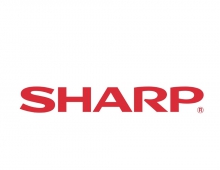
EU will vote on software patents rules on Wednesday
Members of the European Parliament will take the next crucial step in a four-year-long battle over software patents within the European Union on Wednesday, when they hold a decisive vote on a proposed E.U. law, or directive, on computer-implemented inventions .
The proposal has been dubbed the "software patent directive" by its opponents.
The directive is intended to harmonize the patent regime across all 25 member states of the E.U. to offer patent protection to new inventions that are made possible through the use of computer technology, such as mobile phones, digital televisions and washing machines.
The MEPs have to reach an agreement with the European Council of Ministers (made up of representatives of the national governments of the member states) on the text of the legislation before it can become law. In Wednesday's vote, MEPs will consider a series of amendments to a text agreed by the Council in May, called the Council's common position.
While all sides agree that software itself should not be patentable (being covered by copyright law) the fierce debate over the directive has been over the wording of the legislation and, in particular, how terms like invention and innovation are defined.
Large IT companies argue that some of the amendments being proposed by MEPs opposed to the Council's common position do not offer sufficient patent protection because they are based on outdated definitions of technical inventions which are no longer relevant in the digital field.
Critics of the proposed legislation, mainly from the open source community but also including IBM (Profile, Products, Articles) and Sun Microsystems (Profile, Products, Articles), argue that it would open the door to widespread patenting of software and computer programs and allow large IT firms to dominate the market, as small firms would not have the resources to fight litigation from companies that hold many patents.
A large number of MEPs want to clarify definitions to ensure that there are no loopholes for patent lawyers to exploit which would allow software patents through the back door.
A group of almost 200 MEPs from across the political spectrum, including representatives of the far left, the Greens, the Socialists, some Liberals and center-right politicians, is pushing a package of 21 amendments which seeks to restrict the scope of the patent regime. To be adopted, amendments need the support of at least 367 of the 732 MEPs.
That package has won backing from free software campaigners and small businesses alike.
"If we want to preserve a competitive, innovative and successful European IT sector, it is essential that the Council's common position be amended. We believe the set of 21 compromise amendments being put forward by MEPs from all political groups is what is needed to achieve this goal and avoid the worst case scenario of a U.S.-style software patent system," said Rufus Pollock, director of the Foundation for a Free Information Infrastructure U.K. (FFII UK), in a prepared statement Monday.
The FFII UK statement also quoted Toby Churchill, chief executive officer (CEO) of Toby Churchill Ltd., a company which makes communication devices for the disabled, as saying that a U.S.-style software patent system in Europe would be dangerous for small and medium-size software companies and could lead to "frivolous patents" as companies seek to protect themselves from litigation.
However, large companies including German software developer SAP (Profile, Products, Articles) AG contest this view.
"The open source community thinks patents have got in their way. But SAP only has 24 patents. If it was true (that patents got in the way), how come open source has flourished? Noone has been sued. Small and medium-size software companies have more patents than SAP," said Les Hayman, an advisor to SAP's CEO.
European high tech companies insist that the legislation should provide a patent regime that will allow them to protect their innovations from illegal copying, and reward spending on research and development (R&D).
European Parliament
On Wednesday, the CEOs of Alcatel (Profile, Products, Articles), Telefonaktiebolaget LM Ericsson, Nokia (Profile, Products, Articles), Koninklijke Philips Electronics, and Siemens (Profile, Products, Articles), together with the European Information and Computer Technology Association (EICTA), sent a joint letter to the president of the Council of Ministers warning that the amendments proposed by the Parliament "risk negatively impacting on Europe's digital technology industry." EICTA represents 53 IT companies and 34 national IT industry associations.
Carl-Henric Svanberg, president and CEO of Ericsson, said, "It is incredibly important that we get a favorable legal framework because this will direct our work going forward in R&D. If we are not able to patent our computer-implemented inventions, the digital technology industry, and also Europe as a region, will have difficulty staying competitive."
On June 20, MEPs from Parliament's legal affairs committee recommended a version of the directive which was largely welcomed by the IT industry. This was because the committee refused to take on board amendments to the legislation which would have restricted the scope of the patent regime and excluded activities such as data processing from patent protection.
Mark MacGann, director of EICTA, said that the committee's decision was "positive because so many bad amendments were rejected."
However, many of those amendments are being presented again ahead of Wednesday's vote, and both opponents and defenders of the directive are waiting anxiously to see which ones will find support from the Parliament's 732 MEPs. They will debate the proposal on Tuesday.
It's not clear if a sufficient number of MEPs will back the package of amendments, or whether there will be enough support for the legal affairs committee's position. In this case, the Council common position adopted in May will stand. This version has been heavily criticized by opponents of the directive, who say it will allow a wide range of products to be patented.
The legislative process doesn't end with Parliament's vote. The Council then has three months to consider Parliament's amendments. It can accept them, or choose by unanimous vote to reject them. If it rejects them, Parliament and the Council would enter a special process designed to broker an agreement, called "conciliation," and if this failed to produce a deal, the directive would be abandoned.
The directive has been the subject of some of the most intensive lobbying ever seen in the European Parliament's history.
The Parliament has over 5,000 accredited lobbyists. One IT industry lobbyist said he had met around 300 MEPs face-to-face to explain his organization's point of view.
However, this effort may not have had the desired effect. Eva Lichtenberger, an Austrian Green MEP, said that the heavy lobbying "might have been counter-productive" because politicians were aware of the enormous commercial interests behind the directive.
From InfoWorld





















